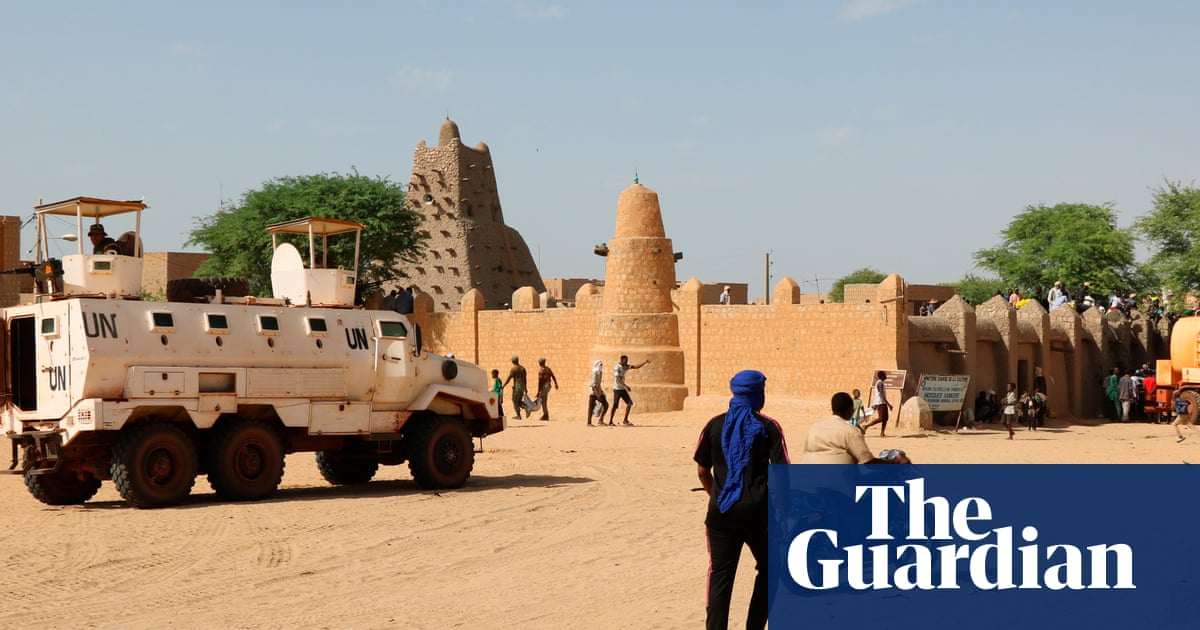An al-Qaida-linked group has launched an assault on a Malian army base in Timbuktu, according to military sources and local officials, a day after it claimed responsibility for another attack near the border with Burkina Faso.
“The terrorists arrived today in Timbuktu with a vehicle packed with explosives,” a local official told Agence France-Presse. “The vehicle exploded near the [military] camp. Shooting is currently continuing.”
Residents of the ancient city also told journalists that they had heard gunfire.
The news came as the group Jama’a Nusrat ul-Islam wa al-Muslimin (JNIM) claimed responsibility for an attack on an army base in Boulkessi, near the border with Burkina Faso. The Malian authorities are yet to give casualty figures from Sunday’s attack, but sources have told Reuters that as many as 30 soldiers were killed.
Since 2012, a swarm of jihadist groups including most notably the Islamic State in the Greater Sahara (ISGS) and JNIM have been fighting Malian security forces.
When Mali’s juntaseized power in 2020, it cited the deteriorating security situation as a major reason for its coup and promised to act decisively to stabilise the country.
Experts and civil society figures say there has barely been any improvement in the situation, while indiscriminate killings by Malian security forces have increased in tandem with the arrival in the country of Russian mercenaries operating at first under the banner of the Wagner group and thenAfricaCorps.
Armed groups have also continued attacks in the Liptako-Gourma region where Burkina Faso, Mali and Niger converge. In February,Human Rights Watch reported34 people were killed when an armed group ambushed a civilian convoy travelling from Gao to Ansongo in the north-east of Mali, despite the vehicles being escorted by five military pickup trucks.
Similar attacks have taken place across the Sahel, which accounts for more than half of all deaths worldwide from terrorism. Recent attacks have targeted military formations including the 2019 killing of dozens of soldiers at a Boulkessi base andraids on army campsin north-east Nigeria in March.
Last July, Malian authorities made the rare admission that “significant” losses had been suffered after clashes pitting the army and Russian-backed mercenaries against jihadists near the desert town of Tinzaouaten.
Since the start of May, more than 400 soldiers have reportedly been killed by insurgents in military bases and towns in Burkina Faso, Mali and Niger. In January, the trio announced their exit from the regional Ecowas bloc – which turned 50 this May – to form the Alliance of Sahel States (AES), partly to enhance military cooperation.
